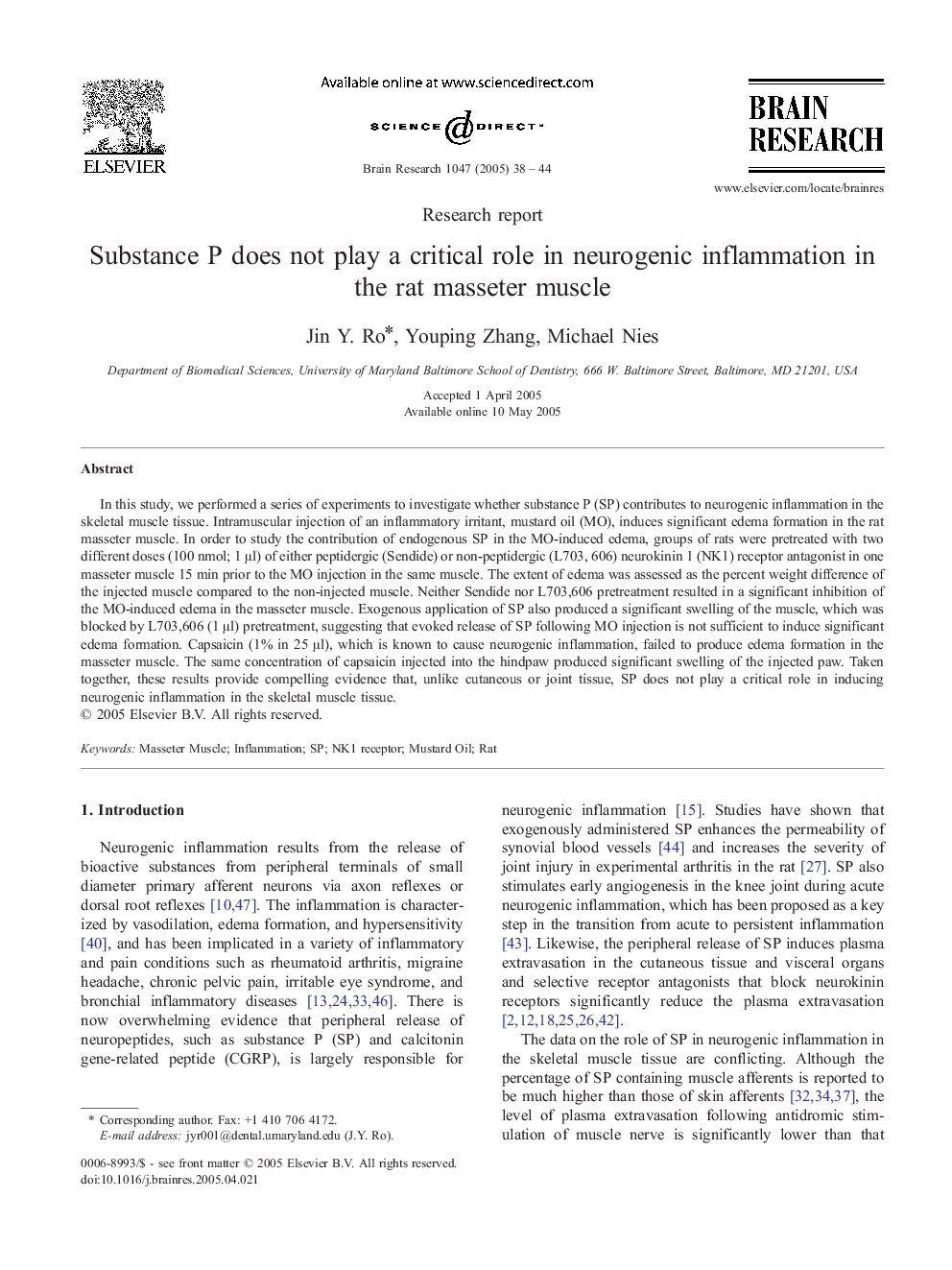| Article ID | Journal | Published Year | Pages | File Type |
|---|---|---|---|---|
| 9416235 | Brain Research | 2005 | 7 Pages |
Abstract
In this study, we performed a series of experiments to investigate whether substance P (SP) contributes to neurogenic inflammation in the skeletal muscle tissue. Intramuscular injection of an inflammatory irritant, mustard oil (MO), induces significant edema formation in the rat masseter muscle. In order to study the contribution of endogenous SP in the MO-induced edema, groups of rats were pretreated with two different doses (100 nmol; 1 μl) of either peptidergic (Sendide) or non-peptidergic (L703, 606) neurokinin 1 (NK1) receptor antagonist in one masseter muscle 15 min prior to the MO injection in the same muscle. The extent of edema was assessed as the percent weight difference of the injected muscle compared to the non-injected muscle. Neither Sendide nor L703,606 pretreatment resulted in a significant inhibition of the MO-induced edema in the masseter muscle. Exogenous application of SP also produced a significant swelling of the muscle, which was blocked by L703,606 (1 μl) pretreatment, suggesting that evoked release of SP following MO injection is not sufficient to induce significant edema formation. Capsaicin (1% in 25 μl), which is known to cause neurogenic inflammation, failed to produce edema formation in the masseter muscle. The same concentration of capsaicin injected into the hindpaw produced significant swelling of the injected paw. Taken together, these results provide compelling evidence that, unlike cutaneous or joint tissue, SP does not play a critical role in inducing neurogenic inflammation in the skeletal muscle tissue.
Related Topics
Life Sciences
Neuroscience
Neuroscience (General)
Authors
Jin Y. Ro, Youping Zhang, Michael Nies,
